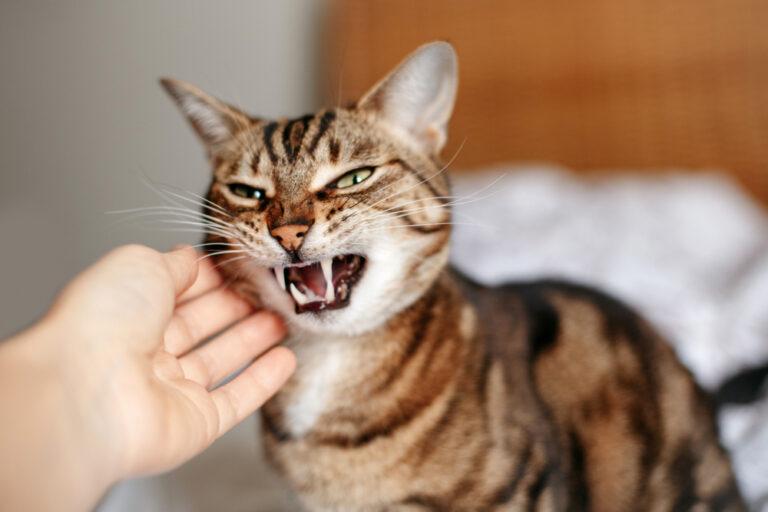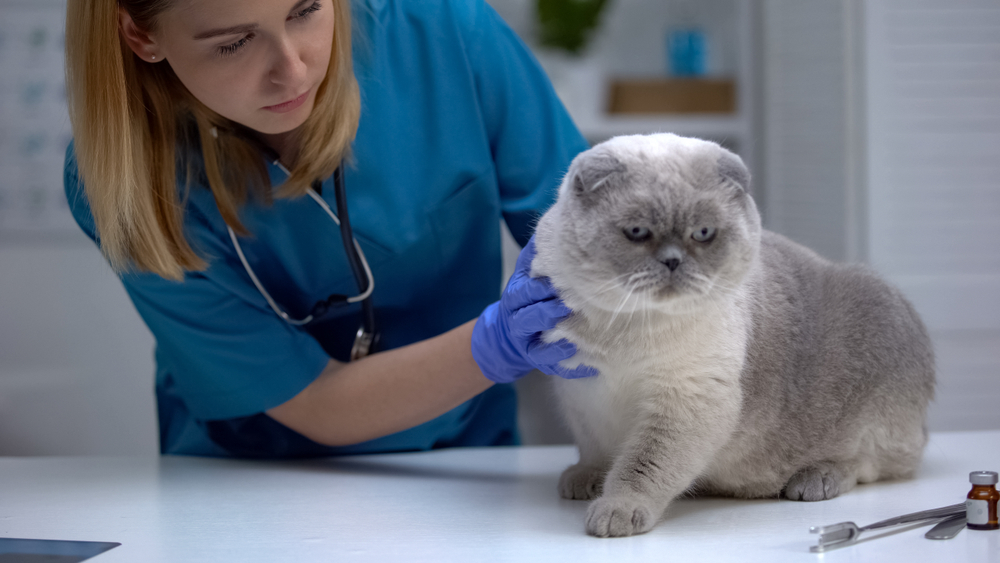
Stress is a common theme in today’s society. Stress affects our moods, disrupts our sleep, and endangers our health. Cats are equally susceptible to stress and can suffer the same negative effects, often in silence.
Learn how to identify and reduce feline stress and lower your cat’s risk for stress-related health issues with this guide from Urgent Pet Care Omaha.
Stress and stress triggers in cats
Cats are masters of deception. They may look blasé, but they are exceptionally sensitive to stress, defined as a state of physical or mental tension that triggers a change in the body. And, although mild to moderate stress is beneficial (i.e., eustress) and can prompt positive actions, chronic or extreme stress negatively affects every physical and psychological process.
Stress can be highly individual in cats, meaning that one cat’s trigger may leave another cat completely unaffected. The first step toward better health is knowing how to recognize and reduce your cat’s potential stressors. The most common triggers include:
Sudden food or litter change
Relocation or rehoming
Loud noises
Resource access (e.g., insufficient litter boxes, too few accessible food and water bowls)
Environmental changes (e.g., new furniture, home renovation)
Inter-pet bullying
Addition or loss of a family member or fellow pet
Boredom
Illness
Vision or hearing loss
Acute or chronic pain because of injury, illness, or an untreated condition (e.g., arthritis)
Recognizing cat stress
Acute or sudden stress in cats is generally easier to identify, because their signs are obvious and universally associated with pain or fear. Acute stress signs include a low body posture, flattened ears, dilated pupils, and involuntary urination or defecation. These cats may hide and be aggressive if approached. Alternatively, chronic (i.e., long-term) stress can be more subtle and is often mistaken for bad behavior, age-related decline, or clinical illness.
Chronic stress signs may include
Appetite loss or finicky behavior
Personality changes
Decreased play or interest in toys
Urine spraying or marking
Attention-seeking behavior or reduced interest in social interactions
Increased sleep
Eliminating outside the litter box
Abnormal grooming habits (e.g., excessive, neglected)
Hypervigilance
Aggression
Resource guarding or redirected aggression onto other household members
If your cat’s behavior or routine has inexplicably changed, contact your primary veterinarian to help you identify recent stress triggers, including underlying health conditions, and reduce or eliminate your cat’s stress.
Stress-related health conditions in cats
Although illness and pain are common stressors, unmanaged stress can also trigger serious primary health and behavior issues, such as:
Hepatic lipidosis (i.e., fatty liver disease) — A stressed cat who stops eating for more than three or four days is at risk for this potentially fatal condition. In a cat with hepatic lipidosis, stored fat is transferred to the liver and disrupts normal organ function. Affected cats become increasingly sick and require immediate hospitalization and treatment.
Feline urethral obstruction — Urinary obstruction is an emergency condition in which a plug of mucus or mineralized debris blocks the cat’s urethra. “Blocked” cats cannot urinate and are at risk for life-threatening bladder rupture and kidney failure if they do not receive immediate veterinary attention. Urethral blockage can recur without corrective surgery, especially if the stressor is not identified and removed.
Feline idiopathic cystitis (FIC) — FIC is an inflammatory condition that affects the bladder lining and causes painful or bloody urination. In addition to showing urinary discomfort, affected cats may eliminate outside the litter box.
Behavior disorders — Stress in cats can result in abnormal or repetitive behaviors, such as urine spraying, overgrooming, destructive scratching, or consuming non-food items (i.e., pica) as they attempt to relieve their stress.
Stress reduction and prevention for cats
Stress is an inevitable part of life, but you can reduce your cat’s exposure to unnecessary stress and safeguard their health.
First, ensure your primary veterinarian provides your cat with routine veterinary care, including a full physical examination, vaccines, and wellness blood work. Do not wait for a problem to arise—rather, visit your veterinarian regularly to ensure early detection and treatment of stress-causing conditions.
Next, evaluate and manage your cat’s environmental stress with a safe and predictable home environment, which includes maintaining consistent food, attention, enrichment, and litter box cleaning routines. If your home is noisy or chaotic, create a safe space, such as a cozy hiding place in a low-traffic area, where your cat can escape the hubbub. You can also use calming pheromones throughout your home to provide a sense of peace and comfort.
Ensure your cat’s resources (e.g., food, water, litter box, scratching post, bed) are plentiful and readily accessible. As a general rule, provide one resource for each cat, plus one (e.g., a three-cat home should have four litter boxes) to prevent guarding or bullying.
When change is necessary (e.g., discontinued food, new pet, relocation), make the transition as slowly and gradually as possible to prevent unnecessary stress.

Help and hope for stressed cats
If you suspect your cat is suffering from stress, schedule an appointment with your primary veterinarian, who will not only diagnose or treat your cat’s existing conditions, but also review their behavior history and help pinpoint and resolve potential stressors.
Life with pets can be stressful at both ends of the leash. Fortunately, the Urgent Pet Care Omaha team is always ready to provide professional veterinary attention for all your pet’s urgent, emergent, and after-hours needs. If your pet needs immediate assistance, contact our team.

